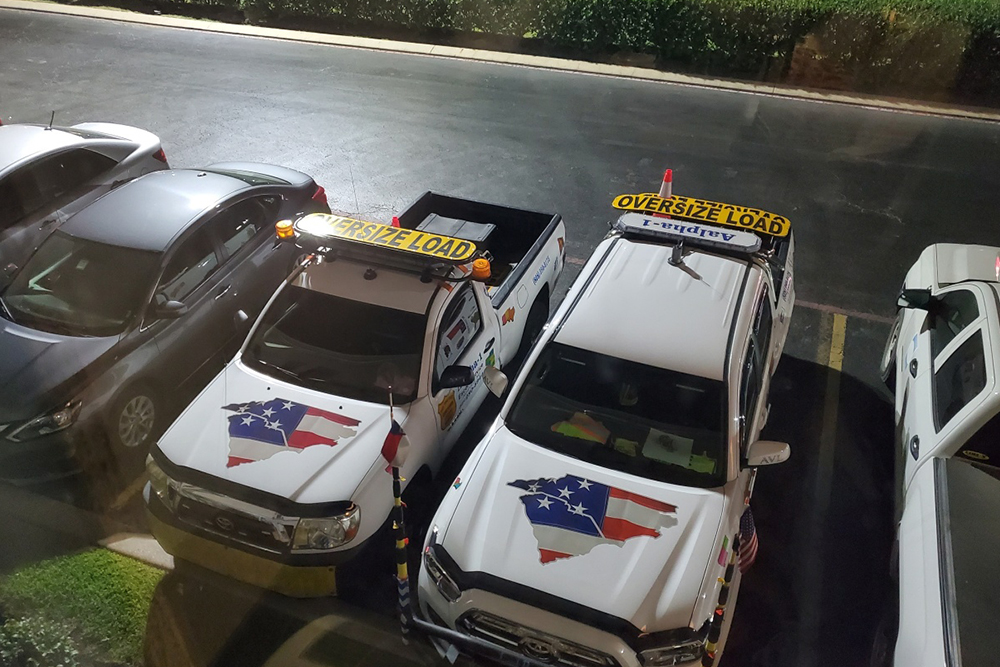When it comes to ensuring the safe and smooth transportation of oversized loads, professional pilot car drivers play a crucial role. These individuals are responsible for escorting wide or heavy loads on the road, alerting other motorists of the presence of the oversized vehicle, and helping to navigate challenging routes. To excel in this role and meet the specific demands of escorting oversized loads in the United States and Canada, there are certain qualifications and skills that professional pilot car drivers should possess.
1. Valid Driver’s License
A fundamental requirement for any pilot car driver is a valid driver’s license. Without a driver’s license, individuals are not legally allowed to operate a motor vehicle on public roads. Additionally, having a clean driving record is often a prerequisite for employment as a pilot car driver, as it demonstrates responsibility and adherence to traffic laws.
2. Certification and Training
In both the United States and Canada, professional pilot car drivers are typically required to undergo specific training and obtain certification to operate as escorts for oversized loads. This training covers topics such as traffic management, communication protocols, understanding road regulations, and emergency procedures. Certification helps ensure that pilot car drivers are well-equipped to handle the unique challenges associated with escorting oversized loads safely and effectively.
3. Knowledge of Regulations
Professional pilot car drivers must have a solid understanding of the regulations governing the transportation of oversized loads in the regions where they operate. This includes knowledge of size and weight restrictions, permit requirements, flagging procedures, and any specific rules or guidelines that apply to escort vehicles. By staying informed about the relevant regulations, pilot car drivers can help prevent accidents, delays, and legal issues during transport.
4. Communication Skills
Effective communication is essential for professional pilot car drivers, as they must coordinate with the truck driver hauling the oversized load, as well as with other vehicles on the road. Clear and timely communication helps ensure that all parties involved are aware of the presence of the oversized vehicle and can respond appropriately to changing road conditions. Strong communication skills also enable pilot car drivers to alert others to any potential hazards or obstacles along the route.
5. Navigation Skills
Pilot car drivers are responsible for helping navigate the oversized load through potentially challenging routes, such as narrow roads, sharp curves, or low-clearance areas. Therefore, a good sense of direction and strong navigation skills are essential for pilot car drivers to safely guide the truck and its cargo to its destination. Familiarity with GPS systems and map reading can also be beneficial in ensuring smooth and efficient transport.
6. Safety Awareness
Safety should always be a top priority for professional pilot car drivers. These individuals must be vigilant and proactive in identifying potential safety hazards on the road, such as low-hanging branches, road construction, or adverse weather conditions. By staying alert and practicing defensive driving techniques, pilot car drivers can help prevent accidents and protect the oversized load, the truck driver, and other motorists on the road.
7. Physical Fitness
The role of a pilot car driver can be physically demanding, requiring individuals to be on their feet for extended periods and to perform tasks such as flagging, signaling, and assisting with vehicle inspections. Good physical fitness is important for sustaining the physical rigors of the job and ensuring that pilot car drivers can effectively carry out their duties without fatigue or injury.
Final Thoughts
Professional pilot car drivers in the United States and Canada should possess a combination of technical skills, communication abilities, and a strong dedication to safety. By meeting the qualifications outlined above, pilot car drivers can navigate the unique challenges of escorting oversized loads and contribute to the safe and efficient transport of wide or heavy cargo on the road.

